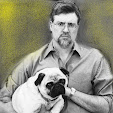
I'm going to try to wind down my war reading for a bit, but I thought I would read another classic that I've missed: Erich Maria Remarque's World War I novel
All Quiet on the Western Front. My expectations were moderate: I thought it might strike me as quaint or dated, and somehow I've come to associate the book with high school curriculum -- perhaps accessible and yearning youth in the trenches. Finally, the title made me expect attention to lulls in the war ("All Quiet" -- a questionable translation for "Nichts Neues").
These expectations were misguided, to say the least. This book is bloody, brutal, anguished, and unredemptive. It has several scenes that capture the unspeakable fear, chaos, and inhumanity of battle. Here, a description of a counterattack: "We have lost all feeling for one another. We can hardly control ourselves when our glance lights on the form of some other man. We are insensible, dead men, who through some trick, some dreadful magic, are still able to run and to kill."
The narrator later reflects on the wounded in hospitals, and how hospitals filled with maimed men are spread across Europe: "How senseless is everything that can ever be written, done, or thought, when such things are possible. It must be all lies and of no account when the culture of a thousand years could not prevent this stream of blood being poured out, these torture chambers in their hundreds of thousands. A hospital alone shows what war is."
Remarque (so I read in Wikipedia) left Germany in 1931 and emigrated to the U.S. in 1939 (returning to Switzerland after the war). The Nazis burned his books and guillotined his sister.



